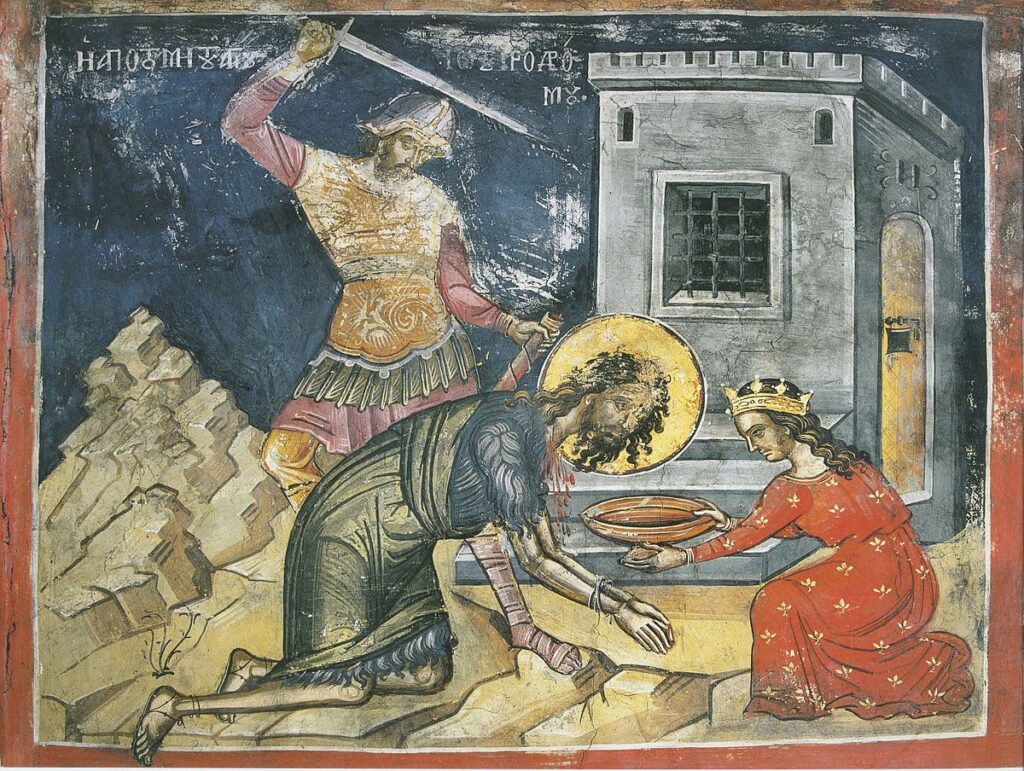In the name of the Father, and of the Son, and of the Holy Spirit, One God, Amen.

What do you do, dear brothers and sisters in Christ, when a thought comes to you about your own sins? What do I do? Is it an invitation to let go of the sins, to progress in the spiritual life, to become more like the human being we were created to be? Or do we bury it, or lock it up—put it away from our thoughts so we can get on with our life? We can deal with it later!
Herod Antipas was confronted with his sins, by the honourable Forerunner John, and his reaction was to hide away the Prophet rather than deal with the situation. And because he allowed the sin to fester, to cultivate in his court and in his heart, the sin took power over him. It need not have been the dancing—sin finds a way to express itself in a variety of ways—but the sin saw its opportunity and forced Herod into a greater sin since sin begets sin. The Forerunner, he who pointed to the sin, had to be removed so the sin could grow further.
And we read this account in Mark’s Gospel, my dear brothers and sisters, and we are invited to identify ourselves as Herod: I have sinned, I have fallen short of the glory I have been given. Yet the Church, in her great love for you and her great love for me, has given us a way out of this situation: we need not lead a life like Herod the King—not to be confused with his father Herod the Great who reigned at the time of the Lord’s birth. The Church offers to each of us the opportunity to name our sin, to reject our sin, to get up again if we fall down: the Church offers to us reconciliation through Confession. And when we confess, when we cast out sin from our hearts, we have the opportunity to replace the content of our hearts with what is immortal in the place of mortality, good in the place of evil, heavenly for earthly, life for death—our hearts can become the dwelling places of God.
My dear brothers and sisters, soon we will sing “Let us lay aside all the cares of this life,” but the Cherubic Hymn goes on, “That we may receive the King of All.” May this be our calling, our prayer, our life, so that we no longer be made dull by sin and God may shine out through us.
To our forgiving and merciful God be all glory, honour and worship: to the Father, Son and Holy Spirit, now and ever and to the ages of ages, Amen.
